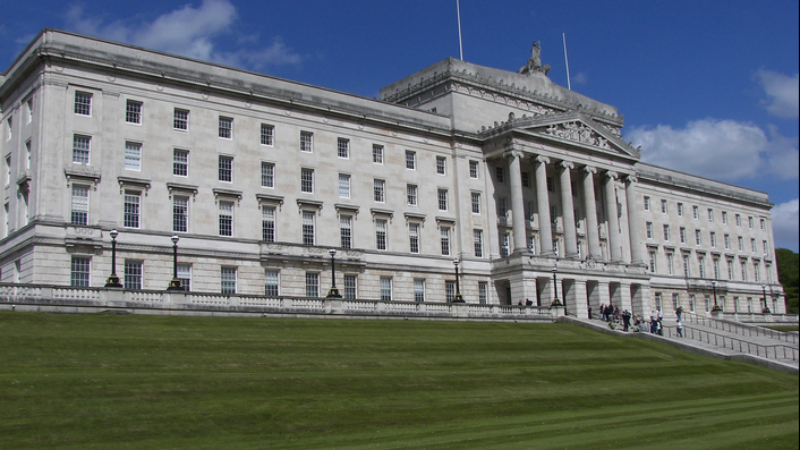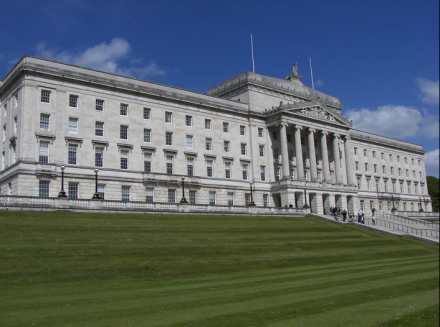

Following the failure of David Cameron’s flying visit to Belfast last week, Northern Ireland is once again looking into the abyss of a political crisis. After nearly 100 hours of painstaking negotiation, the Northern Ireland parties have not been able to break a stalemate which has paralysed politics in Northern Ireland for the past eighteen months. The issues at hand are challenging: they include how to deal with the legacy of Northern Ireland’s past, issues of culture and identity, flags and parading. Perhaps, most crucially, they also cover securing an agreement on a viable and sustainable budget. This includes a package of welfare reform which protects the people of Northern Ireland from the worst excesses of the Tory-led Government’s welfare cuts, while making necessary changes to the welfare system and staving off financial penalties from the Treasury for failing to make projected budget savings.
It is hard to overstate the importance of these talks. If agreement cannot be brokered on the budget by January, Northern Ireland will be heading for a serious financial crisis which has the potential to precipitate the collapse of the Stormont institutions. It is also unlikely there will be any agreement on the budget, without progress on many, if not all of the legacy issues.
We have welcomed the UK and Irish Governments’ facilitation of the current all-party talks. However, they take place in the context of a three year period where the UK Government largely disengaged from Northern Ireland, leaving a vacuum which has contributed to the ongoing political stalemate.
David Cameron’s flying visit last week failed partially due to a lack of any discernible strategy, but also because he has failed to build the relationships of trust and mutual respect so essential for any complex negotiations. It had echoes of his dismal efforts to build alliances for change within the European Union.
His intervention in the talks followed George Osborne’s Autumn Statement announcement that if Northern Ireland’s politicians can demonstrate financial probity they will be given devolved powers over corporation tax. This announcement raises more questions than answers. If Northern Ireland’s politicians cannot agree on the current budget, how will they agree the severe cuts to frontline services which will be required if the objective is to reduce corporation tax to the same level as the Republic of Ireland? What about the impact of lower corporation tax on other parts of the UK? These are complex questions to which we have so far had no answers.
There are areas where the Northern Ireland parties are right to demand real, active and sustained input from a British Government. The global banking crisis and consequential austerity has meant a lesser peace dividend than was originally envisaged. And it has to be recognised that Northern Ireland faces special challenges and unique costs related to dealing with the traumas of the past and seeking truth and justice for the victims of the troubles and their loved ones. But fairness also means there can be no blank cheques or immunity from tough choices.
Labour has recognised that perhaps the greatest challenge of all is the significant number of people in all communities who are economically inactive, denied opportunities available to the rest of society and feel alienated. That is why we have established the Heenan-Anderson Commission to focus on practical measures to tackle the intergenerational deprivation and inequality which are the breeding ground for political extremism and sectarianism.
As Northern Ireland stands on the precipice of yet another political crisis, it is essential never to forget the progress which has been made since the end of the Troubles. We should be immensely proud of the leading role played by Tony Blair, Mo Mowlam and successive Labour Secretaries of State in making peace and stability possible. However, progress towards a shared future has undoubtedly stalled and there is widespread public frustration at continuing political stalemate. In this context, we have a particular duty to do all we can to support the UK and Irish Governments in their efforts to facilitate an agreement.
The people of Northern Ireland deserve better from political leaders both at Stormont and Westminster. They yearn for politicians who dare once again to offer hope that the journey to a shared future, while not easy, is irreversible; who accept that a shared obligation and a shared commitment to a better future will require compromise and tough choices. And most of all, politicians who realise that in a society emerging from conflict, to stand still is to go backwards.
Ivan Lewis MP for Bury South, and Shadow Secretary of State for Northern Ireland




More from LabourList
‘The High Court judgment brings more uncertainty for the trans community’
‘There are good and bad businesses. Labour needs to be able to explain the difference’
‘This ruling should now remove any remaining barrier to approval of EHRC code’